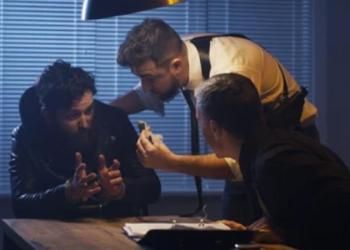
Forfeiture and Coerced Confessions
Failure object to the admissibility of evidence at the trial court level precludes, as a general rule, an appellate court from considering the issue. An appellate court, however, has the discretion to consider an issue not previously objected to if the issue involves pure questions of law on undisputed facts. A confession coerced by a threat to arrest a close relative is a violation of the Due Process Clause and not admissible in evidence. An exception to this rule applies when probable cause to arrest the relative exists.
Defendant Enrique Mayorga Jimenez lived in a residential neighborhood in the City of Highland, California, on Elmwood Road, with his two sons (ages 14 and 17) and his elderly disabled mother. Seven or eight doors down the street was the residence of Morris Barnes; a gang member known to defendant as “Maurice.” Defendant had heard rumors that Maurice—who he considered to be a friend—and his gangster homies were planning to do a home invasion robbery at defendant’s residence, intending to steal marijuana that defendant grew in his house. On May 19th of 2016, defendant, while outside, encountered Maurice walking down the street in front of his house. Defendant—thinking about maybe killing Maurice but not yet being able to make up his mind—invited him into his garage for a beer. As the two of them sat there drinking together, defendant eventually told Maurice: “I don't understand how can you tell my business to other people and put my mom and my family in harm’s way.” Maurice’s repeated denials to knowing what he was talking about only pissed defendant off. Knowing only one way to “make sure that nothin’ happens to my mom,” defendant went into his house and got a kitchen knife. Returning to the garage, defendant grabbed Maurice in a headlock and stabbed him in the neck and back, killing him. He then stuffed Maurine’s body into a trashcan and poured gasoline on his remains. That night, Maurine enlisted the aid of his two sons and took Maurice’s body—still stuffed into the trashcan—to an open field where he intended to light it on fire. Just then, however, Sheriff’s Deputy Jeffrey Casey happened to be driving by. Deputy Casey observed the three males and their trashcan in the field. Suspecting that they might be illegally dumping trash, Deputy Casey drove up to them as he turned on his overhead lights, intending to detain the suspects. Defendant and his sons reacted by fleeing the scene in their Chevy Suburban. And so the pursuit was on. The chase went only a few blocks, however, before defendant made a U-turn, returning to the trashcan where he hurriedly tossed a cigarette lighter into the can, setting it (along with Maurice’s body) on fire. Defendant then sped off again. As Deputy Casey and other units followed defendant’s Suburban with lights flashing and sirens on, defendant stopped near his house where he dropped off his two sons; both of whom were immediately arrested. The pursuit went on for some time after that, over various Southern California freeways, eventually ending up in the City of Downey. Defendant was finally arrested when he ran out of gas. In a subsequent videotaped interview with a detective, defendant first claimed that he’d found Maurice’s body in a neighbor’s trash. However, after certain promises were made relative to his sons, defendant fully confessed. Specifically, in discussing defendant’s son’s possible involvement in Maurice’s murder, the detective told defendant that; “. . . (Y)ou’re gonna be the one to help them. . . . (b)ecause I’m gonna have to charge them with the death of the guy. . . . (u)ntil I find out what happened.” Defendant responded: “Okay, well I'll talk to ya and tell ya what happened, okay?” To make sure they were both on the same page, the detective added: “So I want to be able to try to help you and your boys, mostly the boys, so— . . . (s)o we don't have to make them criminals.” Defendant at that point provided a Mirandized confession to killing Maurice and attempting to dispose of his body. His motivation for confessing to murdering Maurice—as he later testified—was to prevent his sons from being charged with murder and taken to Juvenile Hall. Defendant’s confession was used against him at trial without objection from his attorney. Convicted of first degree murder and other charges, he was sentenced to 29-years-to-life. Defendant appealed.





